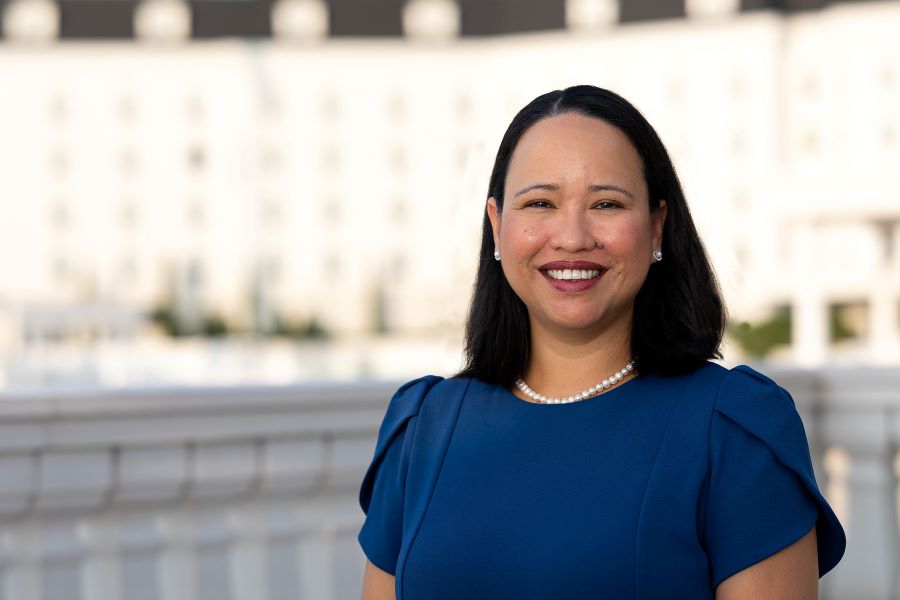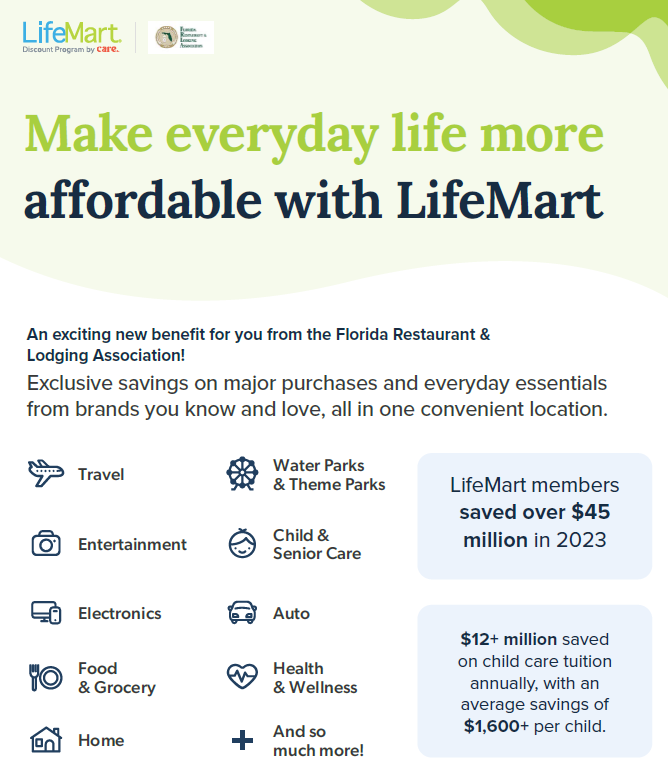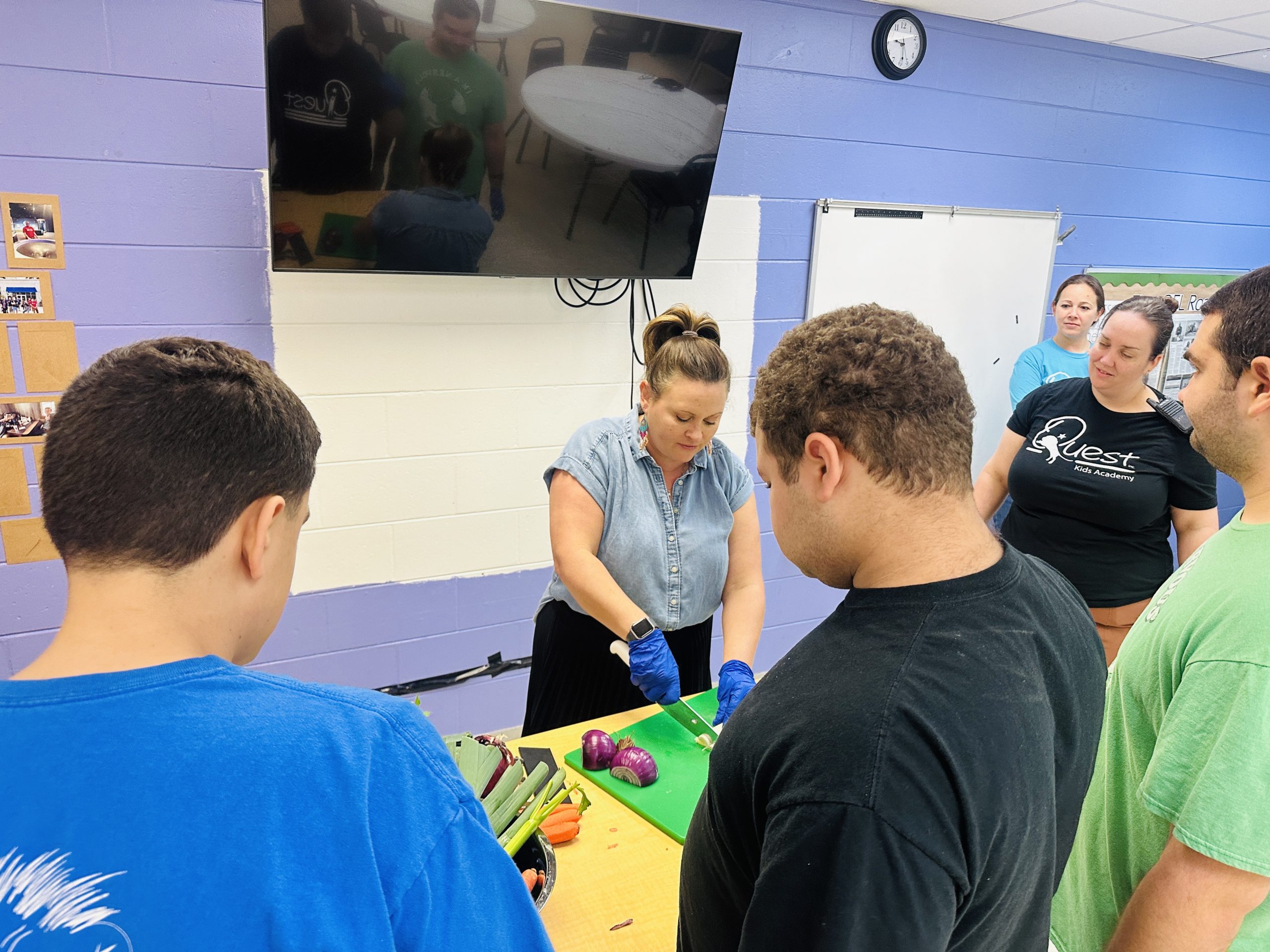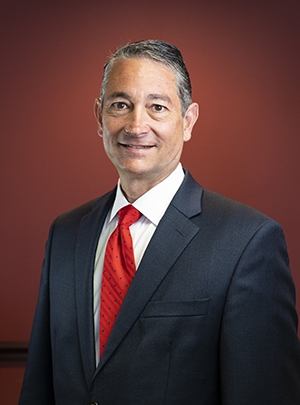Olivia Hoblit, Immediate Past Chairwoman, FRLA Board of Directors Executive Committee
Director of Lodging, World Equestrian Center, Ocala

Welcome to Executive Insights: The Interview Series where we will be sharing a bit more about FRLA’s 2024 Board of Directors Executive Committee. Let’s hear more from our Immediate Past Chairwoman, Olivia Hoblit!
How did you get started in the industry?
At the age of 17, I started working at Wendy’s and also took up a part-time job as a server at a Chinese restaurant at night. As my interest in the legal field grew, I pursued studies while continuing to work two jobs. Eventually, I began working as a part-time legal secretary and gradually worked my way up to becoming a paralegal. Although I enjoyed working in the legal field and even considered pursuing law school, my perspective changed after we moved to Amelia Island for my husband’s new job at The Ritz-Carlton, Amelia Island. I began working part-time on weekends at Elizabeth Pointe Lodge, a luxurious beachfront boutique hotel with the former owners, Susan and David Caples. I quickly realized how much I enjoyed serving people, which led me to choose hospitality as my career. Over the years, I have had the pleasure of working with many talented executive leaders and owners in the hospitality industry, which has allowed me to gain insights into different areas of the field. I have worked as a General Manager for Elizabeth Pointe Lodge/Amelia Island Vacation Rentals; GM/Regional Manager for Innisfree Hotels; Rooms Exec. for The Ritz-Carlton, Amelia Island; and now serve as the Director of Lodging for the World Equestrian Center in Ocala. With 26 years of experience in the industry, I continue to love my career!
What is the most rewarding part of what you do?
There are numerous aspects that make the hospitality profession rewarding; however, in my opinion, the most fulfilling part of working in this industry is the ability to positively impact people’s lives and create meaningful and memorable experiences for our guests. I have the opportunity to meet guests from all over the world and collaborate with talented colleagues with diverse backgrounds and experiences. My passion fuels my goal as a leader, which is to pay it forward by mentoring and developing future leaders. It warms my heart to see others become successful leaders and providers for their families. When individuals grow, their families not only benefit but also flourish.
What is the most important piece of advice you have ever given/been given?
Been Given: My mother, who is the most giving person I know, has constantly reminded me to remain a strong woman, work hard, find my passion, better myself, always give back, never forget where I came from, and continue to learn new things.
Ever Given: Your success hinges on several crucial factors, namely faith, family, relationships, trust, integrity, respect, and connections. As someone who has achieved good success through sheer determination and focus, I can confidently assure you that you too can accomplish anything by setting your mind to reach your goals. While making mistakes is inevitable, they provide a perfect opportunity for you to reflect and innovate. So, always remember that the sky is the limit, and you should never hesitate to take a chance, push yourself beyond your limits, and explore all that life has to offer. In doing so, always stay humbled, authentic, respectful, and empathetic towards everyone you meet along the way.
What emerging trends in hospitality do you find most intriguing?
AI/technology have become increasingly important in today’s business landscape. It helps organizations better understand consumer behavior, streamline operations, improve efficiency and productivity, boost profitability, and enhance the overall guest experience.
What qualities make a successful hospitality team?
A successful team can make all the difference in the hospitality industry. From hotels to restaurants and everything in between, a team with certain vital qualities can ensure customers have the best experience possible. Here are some qualities that make a successful hospitality team.
Customer-focused: A successful hospitality team always puts the customer first. They go above and beyond to ensure that guests are satisfied with their experience and feel valued. Whether greeting them with a smile, providing recommendations, or addressing any concerns, a customer-focused team creates a welcoming and memorable environment.
Excellent communication: Communication is vital in any industry but essential in hospitality. A successful team communicates effectively with each other and with guests, ensuring that everyone is on the same page and that customer needs are being met.
Attention to detail: In hospitality, the little things can make a big difference. A successful team pays close attention to detail, ensuring everything is in order, and the customer experience is flawless. This can include everything from clean linens and well-maintained facilities to personalized touches like remembering a guest’s name or preferred drink.
Adaptability: The hospitality industry constantly changes, and a successful team can adapt to new challenges and situations. Whether dealing with unexpected issues or adjusting to new policies and procedures, a team that can roll with the punches and stay positive can make all the difference.
Positive attitude: A successful hospitality team has a positive attitude. They are passionate about what they do and genuinely enjoy helping people. This enthusiasm is contagious and can create a welcoming and enjoyable atmosphere not just for guests but also for the people they work with.
Cultural Awareness: The hospitality industry caters to guests from all over the world. Therefore, the team must be culturally aware and sensitive to the needs and preferences of guests from different cultures. This includes understanding their customs, traditions, and dietary restrictions. By being culturally aware, the staff can ensure that guests feel welcome and comfortable during their stay.
Teamwork: Teamwork is crucial to the success of a hospitality team. Whether it’s working together to accommodate a guest’s request or collaborating to provide excellent service, a successful hospitality team must be able to work well together. By working as a team, they can ensure that every guest receives the best possible experience.
What is the most interesting place you have ever traveled to?
The Philippines and Italy. I love the history, food, culture, and the people.
Favorite Florida destination?
Amelia Island, World Equestrian Center in Ocala, and Hawks Cay Resort on Duck Key, FL.
If you could only eat one cuisine for the rest of your life, what would it be?
Filipino cuisine
If you could dine with any historical figure, who would it be?
Mother Teresa
What is the most memorable Florida hotel or restaurant experience you have had as a guest?
My four favorite restaurants are Stirrups and Filo’s at the World Equestrian Center Ocala, Salt at The Ritz-Carlton Amelia Island, and Espana Restaurant in Amelia Island.
Beach or mountains?
Mountain
How do you believe the principles of hospitality can be applied to other industries?
Creating a positive work environment where employees feel respected, trusted, and valued through acts of generosity, empathy, fairness, and accountability is the key to ensuring that they will, in turn, provide exceptional service and care to your guests or customers.
What would you say to those coming up in the hospitality industry?
Working in the hospitality industry offers one of the most rewarding experiences as it allows individuals to positively impact people’s lives by creating unforgettable moments. This industry offers various career paths in room division, food and beverage, finance, sales, special events, engineering, HR, marketing, and retail. Therefore, it is essential to be open to learning all areas of this field and taking chances. The knowledge and skills acquired in hospitality are valuable professionally and personally and can be applied in various industries.
Why is it important for professionals to get involved with FRLA?
Getting involved with the Florida Restaurant and Lodging Association (FRLA) is essential because it offers numerous benefits, including networking opportunities, access to industry information and essential resources, advocacy for our industry, and professional development opportunities. By joining FRLA, professionals can connect with others in the industry, stay informed about industry news and trends, and have a voice in shaping policies that affect their businesses. Additionally, FRLA provides training and educational resources to help members improve their skills and stay competitive in the industry. Overall, getting involved with FRLA can help professionals stay informed, connected, and successful in the dynamic and competitive world of the hospitality industry.
What do you hope to accomplish on the FRLA Executive Committee?
To protect and grow the businesses that create growth not only for the people in the industry but also for the entire state of Florida.
TO READ OLIVIA’S BIOGRAPHY, VISIT OUR FRLA LEADERSHIP PAGE OR CLICK HERE.






